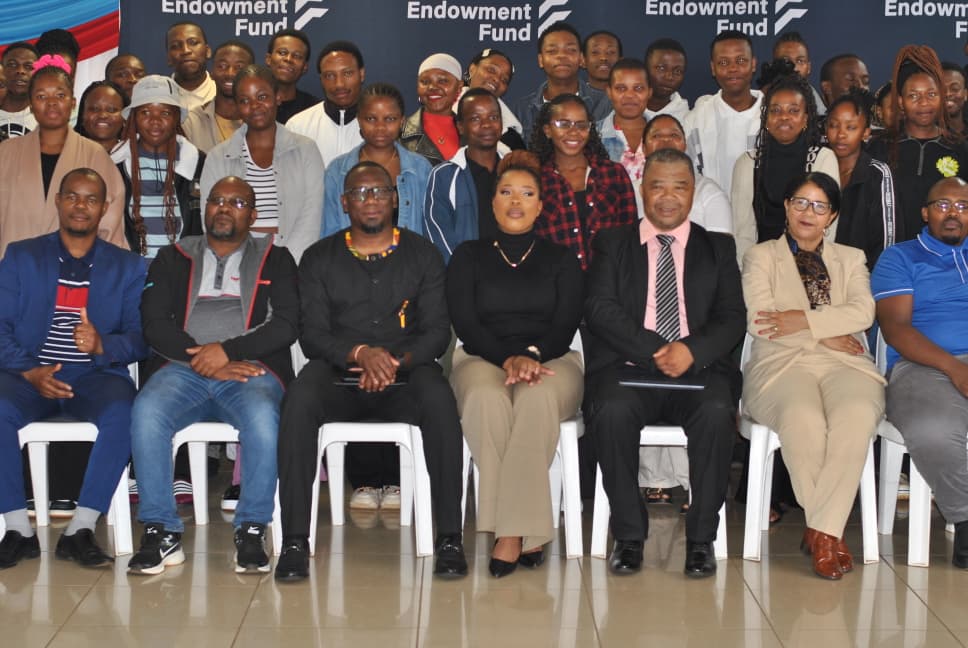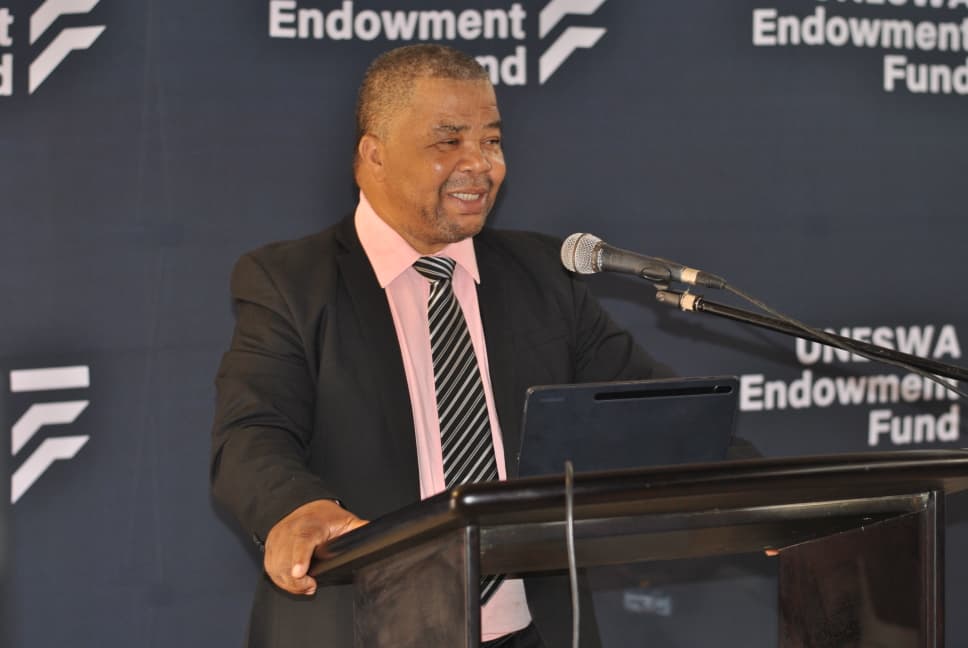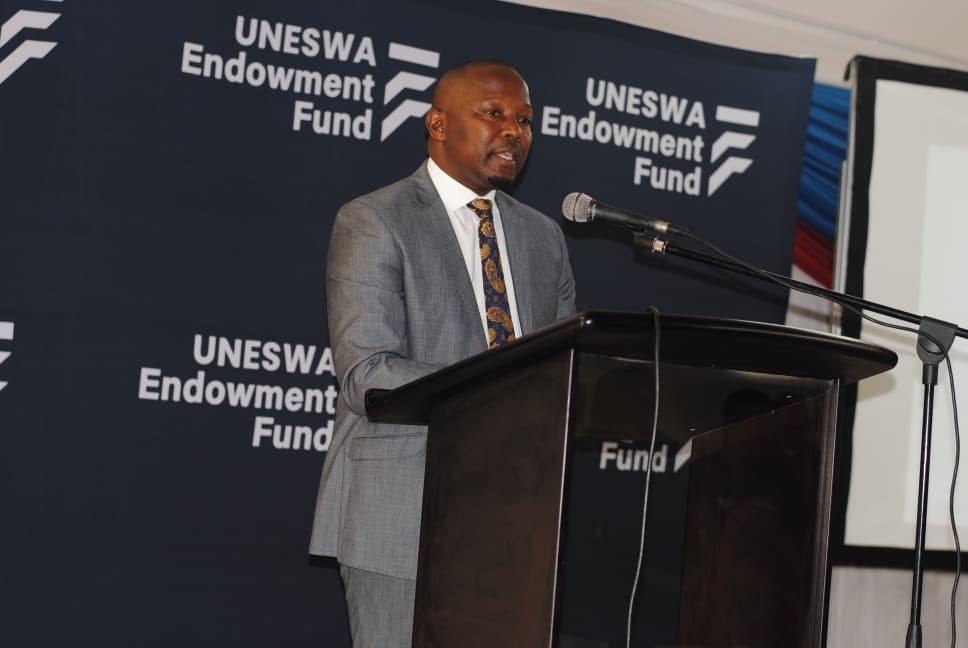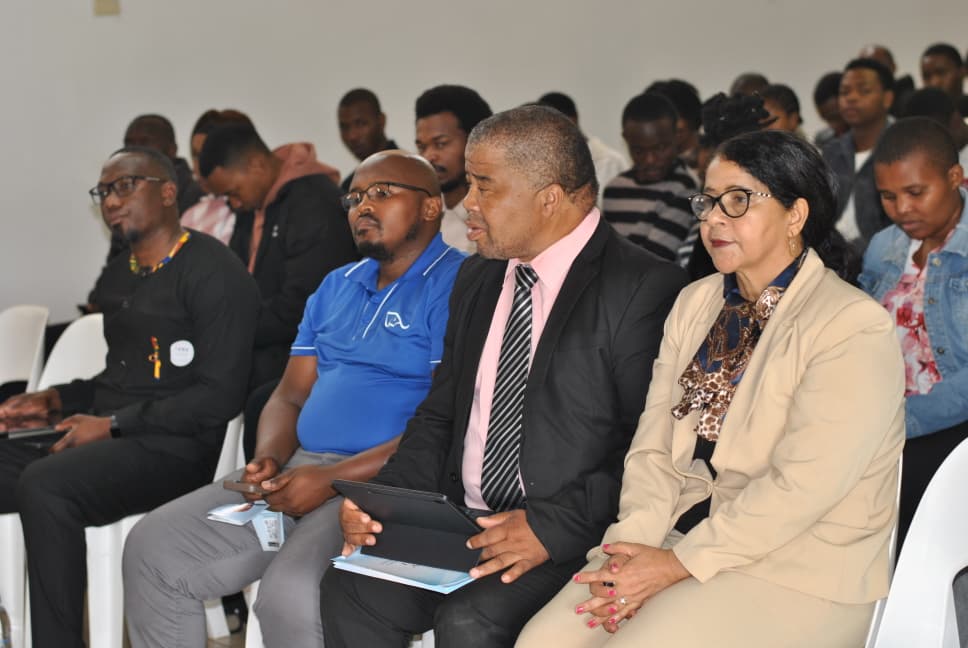
The University of Eswatini (UNESWA) Endowment Fund has established the Emvasi Alumni Club alongside the UNESWA Endowment Fund Strategy Map (2025–2030). This initiative aims to strengthen the university’s long-term financial stability and lessen its dependence on government funding.
The launch at the university’s Kwaluseni Campus brought together the institution’s leadership, alumni, corporate partners, and development agencies, marking an important step toward reimagining the university’s funding model.
UNESWA Financial Challenges
This initiative arises from years of growing financial deficits that have strained the university’s ability to operate effectively. UNESWA has been facing a structural funding shortfall, as operational costs continue to rise while government funding and other income sources fail to keep pace.
Vice-Chancellor Professor Justice Thwala stated that the university’s financial problems are still serious, with debts over E500 million owed to various service providers, pension funds, and banks. He said that this has impacted essential operations, such as purchasing teaching materials, maintaining facilities, and supporting staff welfare.

“Our expenses continue to exceed our revenue. This is why we are struggling to meet core obligations such as pension, medical aid, and payments to service providers,” said Professor Thwala. “In light of these circumstances, we have had to innovate and find new ways to generate sustainable income for the institution.”
The UNESWA Endowment Fund, established in 2024, serves as the main channel for raising financial resources both locally and internationally to support infrastructure, research, and scholarships. The fund’s 2025–2030 Strategy Map aims to implement this mission through six pillars, with financial sustainability as its primary focus.
Innovative Strategies for Revenue Generation
In his speech, Vuli Simelane, CEO of the UNESWA Endowment Fund, stated that the new strategy “piggybacks off” the university’s broader institutional plan by aligning resource mobilization with UNESWA’s academic and developmental priorities.
“Our goal is to accelerate the long-term financial sustainability of the institution,” said Simelane. “We are shifting from a purely donation-based model to a commercial focus, engaging in sectors like real estate, mining, technology, food retail, and logistics to generate income and secure the university’s future.”
At the heart of the new financial plan is the Emvasi Alumni Club. This vibrant, multi-dimensional community unites former students, current students, staff, and friends of UNESWA under one banner. The club will be essential in mobilizing resources, developing professional networks, and fostering pride in the university.

Simelane added that the Alumni Club will also serve as a center for networking, business opportunities, and social activities, with various projects focused on generating revenue and increasing institutional visibility.
He announced that the UNESWA Alumni Clubhouse, located at the Sports Emporium, will be revitalized into a key income-generating facility. The facility will feature a gym, an Olympic-sized swimming pool, a wellness center, and additional services.
“We have developed a new business plan to ensure these world-class facilities are fully utilized and financially sustainable,” Simelane explained. “We aim to generate consistent cash flow that will contribute directly to the university’s operational needs.”
Plans are in progress to partner with local hospitality brands to open an on-campus coffee shop and restaurant, further enhancing the university’s social and business environment.
The Club will also sell UNESWA-branded apparel and merchandise, serving alumni from various programs and lifestyle interests.
He also announced that the university is introducing new on-campus advertising options as part of its efforts to diversify revenue.
“UNESWA is open for business,” he declared. “We’ve engaged many corporate partners who have shown strong interest in advertising within the university. This is common practice globally: universities in neighbouring countries and abroad generate significant revenue from campus advertising, and UNESWA will now follow suit.”
He explained that the initiative will include digital advertising, creative design installations, event sponsorships, and branded content across the university’s campuses.
The club’s event calendar will feature a variety of high-profile activities designed to bring alumni together and raise funds for the university. These include a gala dinner, a family fun day, a UNESWA Music Festival, and a sports tournament.

“These events aim to boost school spirit while generating revenue for the university,” Kunene said. “We want every alumnus to come home to UNESWA.”
To formalize membership, the alumni registration process will be implemented in four phases over four months. Members will receive digital and physical membership cards, giving them access to discounts, event participation, and exclusive programs.
The university also announced an Affiliate Marketing Program, allowing students and alumni to earn commissions by referring others, along with a Loyalty Program to reward ongoing participation and support.
All proceeds and membership subscriptions will contribute to a Collective Investment Scheme managed by professional investment firms, ensuring long-term growth through compound interest.
“This is about building a legacy,” he emphasized. “Government remains a valued partner, but sustainable universities thrive when alumni and the private sector are equally invested.”

